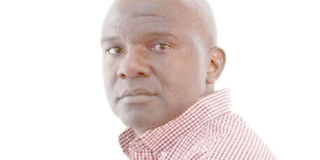Report on 15 years of Uganda’s multiparty politics

Even good things, they say, come to an end. But for them to get to their swansong, they must at least have started and gone on to happen. For about 20 years (1986-2005) Uganda’s political classes opposed to NRM and President Yoweri Museveni’s hold onto power yearned, petitioned court and had running battles to ensure that Uganda moved from the monolithic one party ‘Movement system’ to a multiparty dispensation.
Don’t laugh, the rationale for banning political party activities and entrenching the Movement system in the 1995 Constitution was to ‘curb sectarian tendencies.’ With the Movement system, one stood on individual merit and not on a party platform. The voter took you for what you were not what ideology of a party you represented.
That was until a referendum was held on July 28, 2005 and 90 per cent of the people voted for a Uganda to be opened up to competitive politics.
You see there was a rebellion brewing even in the NRM with people who could no longer breath, tired of towing the party line. They wanted to be set free. Fifteen years later, the report card is out.
With the 2021 General Election around the corner, the news is dominated by infighting in many political parties. There have been splits and new formations. There are crossings too, from one party to another with accusations and counter accusations of people being moles and Trojan horses. Some groupings have been swallowed while others have died quietly.
The trouble with what we perceive as political parties in Uganda and Africa in general is that they are not institutionalised. What we have are political groupings led by charismatic and popular individuals.
People simply converge and associate or ride on the backs of those who they perceive to be popular. It does not matter whether they agree with them or not.
There is nothing like the all-important ideology of a political party being the reference point, guide and glue that brings actors together. When a political group does not have shared values, objective and principles, they are standing for nothing in particular. They will fall for anything along the way as there is no reference point in practice to fall back to in case of contradiction.
What remains depends on one’s situation in the good books of the powerful ‘owner’ of the party.
In NRM, it is Museveni. In FDC it is Kizza Besigye. If you disagree with the head, your fate in the party is sealed. You have to then wander off and look for another political platform or better still stand as an independent candidate. That is why political parties will not grow and become strong to challenge the status quo.
You will only have powerful individuals who hold parties at ransom with the threat of moving to the next grouping that is agreeable to their terms and conditions. So you have an individual going into an election while standing on two opposing political platforms like an opportunistic fisherman, who casts his nets so wide that they catch the Nile perch and the silver fish at the same time.
This behaviour is a terrible setback to those who sacrifice their time and sweat following, supporting and voting for a party that does not grow and keeps losing its individuals. They feel that their patronage is being taken for granted. The political apathy in the country is explained by this. Over half of eligible voters stay away on polling day.
Weak Opposition parties simply work for the status quo. It is no wonder that the incumbent always makes efforts to weaken them further by offering them political appointments and things as mundane as per diem packed trips abroad. It is going to be very hard to correct this situation.
The structure of Uganda’s economy and its policies make politics one of the best and easiest sources of rewarding employment.
Growth is majorly in banking, construction and telecommunication, which employ few people. The risks in trade and agriculture, which are other areas of employment opportunities put many off. They would rather fall for the free and easy money in politics which they fight tooth and nail to join and hang in. Hook or crook means throwing principles through the window in order to perpetuate their stay in this lucrative political business.
Little wonder that the so-called rebel MPs who offered some hope or all those who oppose Museveni from within NRM, be they super ministers, go back on bended knees and apologise. Then those in the Opposition who have hitherto criticised Museveni join him and become more Jesus than Christ in his Cabinet.
The ones who stay the course have found themselves suffering social economic misfortunes. Either they lose their property or businesses and find it hard to get recourse from the courts of law.
The power of the NRM and the ever increasing weakens of the Opposition whose groupings known as parties has no firm foundation in ideology, values and principles, points to a bleak future for multiparty politics.
Powerful individuals will thrive, but won’t amount to much to bring about change. The charade of multiparty politics in Uganda has come to an end.
Twitter: @nsengoba




